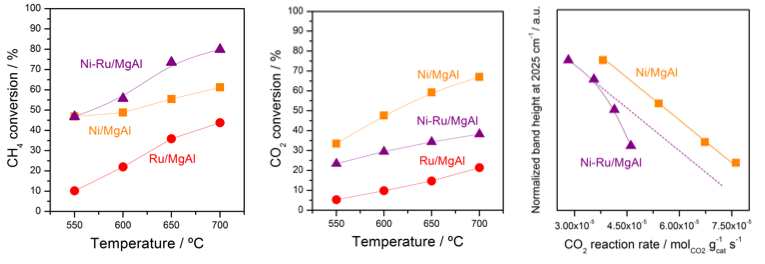ALBA Synchrotron

Prof. Jose Antonio Odriozola from Department of Inorganic Chemistry Materials Science Institute, University of Sevilla – CSIC.
When
Contact info
Inma Hernández
ABSTRACT
Non-stationary hydrogen production for APU in transport, military devices or domestic uses requires the development of active, selective and stable catalysts that fulfill specific requirements related to pyrophiricity, oxidation/reduction cycles for attaining the active phase, sustained start-stop cycles or stability against excess water and/or air. All of this has driven intensive research in new catalysts able of fulfilling these characteristics for the hydrocarbon reforming, water-gas-shift, preferential CO oxidation reaction or even the methanation reactions.
Operando studies allow disclosing the reaction mechanism facilitating the catalyst selection. In the figure the conversion of methane and carbon dioxide is shown together with the CO2 reaction rate
From this study a possible reaction mechanism is proposed that accounts for the importance of ruthenium in avoiding carbon deposition on the catalyst as well as on disclosing the role of formyl species in the reaction path.
